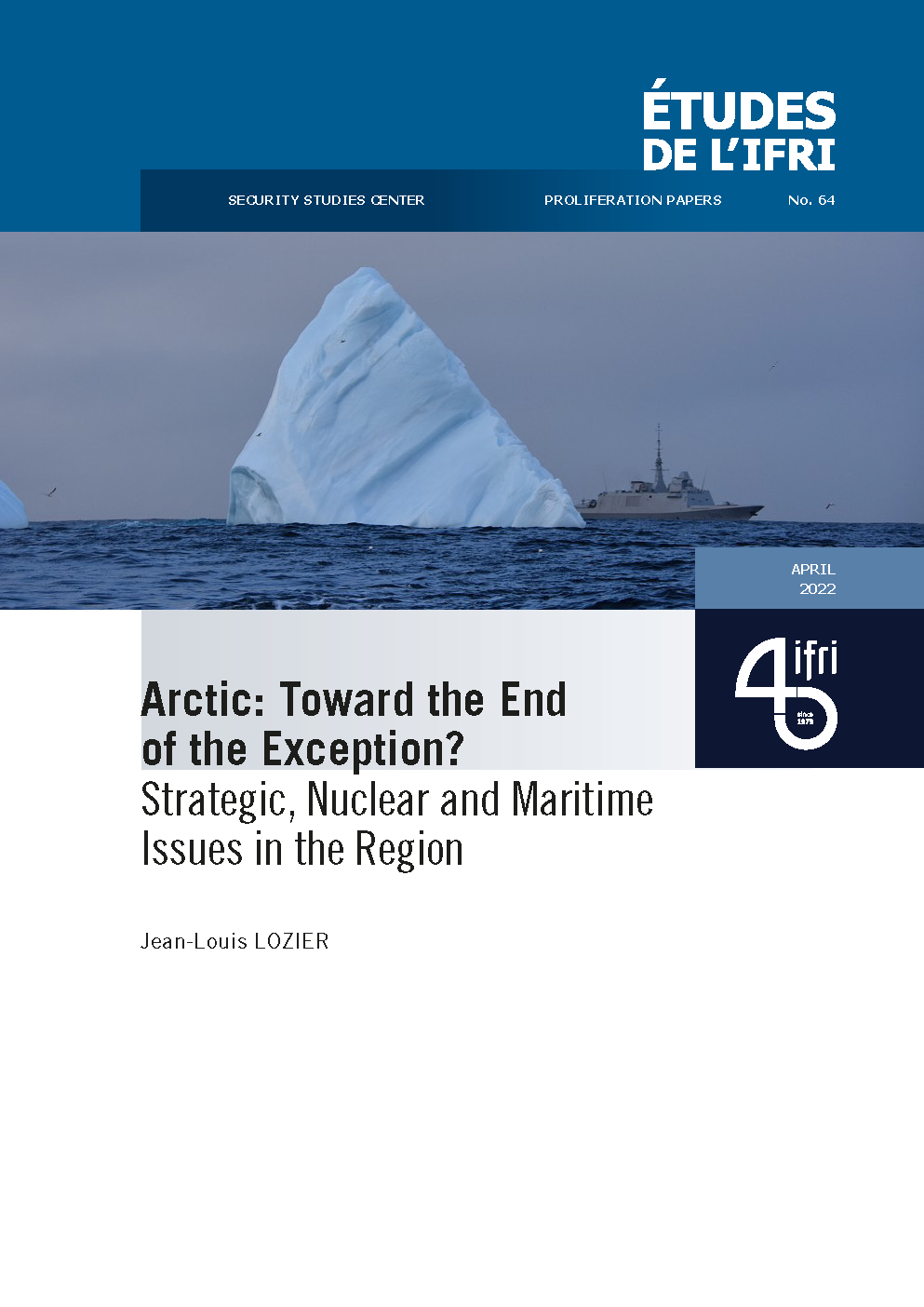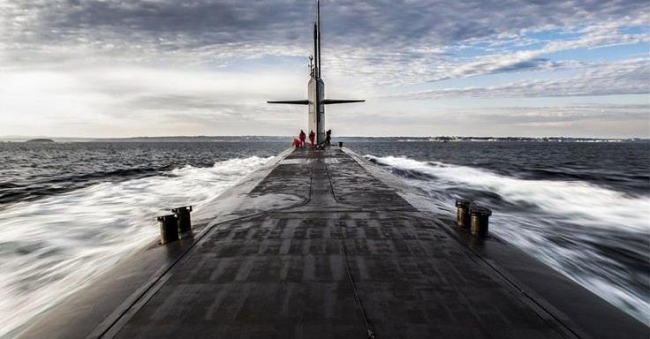Arctic: Toward the End of the Exception? Strategic, Nuclear and Maritime Issues in the Region

Through multiple international initiatives, including the creation of the Arctic Council at the end of the Cold War in 1996, the Arctic appears to be one of the last areas of peaceful cooperation in the world. This “Arctic exception” is also devoid of any serious territorial dispute between the neighboring countries, some of which are nevertheless great powers: Russia, the United States, Canada, but also Sweden, Norway, Denmark (via Greenland), Iceland and Finland.

However, this peaceful cooperation is not exempt from strategic rivalries: for some years now, these States in the Arctic have been redefining their strategic postures, notably through the publication of roadmaps and the deployment of new military forces trained to fight in this hostile environment. Russia thus remains the dominant power in the Arctic, in the face of a China with growing ambitions and a Western world – represented in particular by the United States – which is lagging behind after years concentrated on other military conflicts. Furthermore, the war in Ukraine that started in February 2022 also carry the germs of a broader destabilization of the region.
Conventional competition is therefore renewed between these great powers, while the nuclear balance is partially maintained. It is indeed worth noticing that the Arctic is an area of direct contact between the Russian Federation and the United States. As such, it had a special significance during the Cold War as the shortest route between both adversaries for a potential ballistic missile and was a privileged position for deploying chains of radars and advanced detection systems.
Finally, the shrinkage of the ice pack caused by global warming is also triggering the neighboring or more distant states’ greed, whether through the drilling possibilities for raw materials under the ice floe or the creation of new maritime routes. The latter would notably enable Russia to revitalize its northern flank and offer alternatives to existing transit routes.
This content is also available in French: "Arctique : vers la fin de l’exception ? Enjeux stratégiques, nucléaires et maritimes".

Available in:
Regions and themes
ISBN / ISSN
Share
Download the full analysis
This page contains only a summary of our work. If you would like to have access to all the information from our research on the subject, you can download the full version in PDF format.
Arctic: Toward the End of the Exception? Strategic, Nuclear and Maritime Issues in the Region
Related centers and programs
Discover our other research centers and programsFind out more
Discover all our analysesMain Battle Tank: Obsolescence or Renaissance?
Since February 2022, Russian and Ukrainian forces combined have lost more than 5,000 battle tanks, a much higher volume than all the European armor combined. Spearhead of the Soviet doctrine from which the two belligerents came, tanks were deployed in large numbers from the first day and proved to be a prime target for UAVs that became more numerous and efficient over the months. The large number of UAV strike videos against tanks has also led a certain number of observers to conclude, once again, that armor is obsolete on a modern battlefield. This approach must, however, be nuanced by a deeper study of the losses and their origin, UAVs rarely being the sole origin of the loss itself, often caused by a combination of factors such as mines, artillery or other anti-tank weapons.
Mapping the MilTech War: Eight Lessons from Ukraine’s Battlefield
This report maps out the evolution of key technologies that have emerged or developed in the last 4 years of the war in Ukraine. Its goal is to derive the lessons the North Atlantic Treaty Organization (NATO) could learn to strengthen its defensive capabilities and prepare for modern war, which is large-scale and conventional in nature.
"Iron Swords" A Military Analysis of Israel's War in Gaza
On October 7, 2023, Hamas' attack, dubbed “Al-Aqsa Flood,” caused a major shock and led Israel to launch the longest war in its history. Operation “Iron Swords” was notable for its unprecedented intensity, both in terms of the massive ground forces deployed and the firepower used.
Saudi Arabia’s Nuclear Temptations. Lessons Learned from Regional Instability
Saudi Arabia’s integration in the international arena and regional stability, notably through reducing its dependence on fossil energies, are crucial elements for the success of the Kingdom’s Vision 2030, the Crown Prince’s top priority. However, Mohammed bin Salman’s declarations in 2018 and 2021, indicating that “if Iran develops a nuclear bomb, we will follow suit as soon as possible”, combined with the recent strikes on key Iranian nuclear facilities, do not bode well for the future of the Kingdom, the region and the non-proliferation regime at large.













